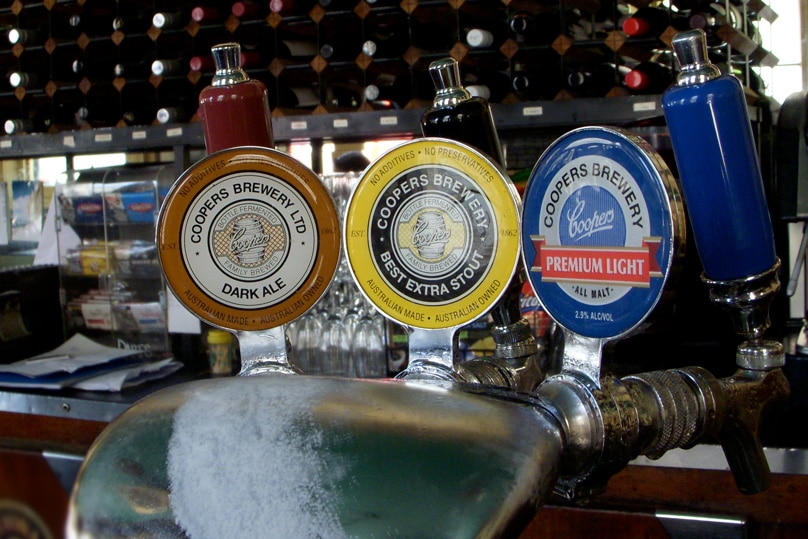
Just after Harry Potter is told that he is a wizard with great power because he did not die at the hands of Lord Voldemort, he is immediately warned that he must never utter Voldemort’s name. Instead, like all others, he should refer to him as: “He Who Must Not Be Named.”
While Voldemort had not been seen for more than a decade, and by all accounts his power was reduced or even non-existent, his reign of terror was so etched in the memory of the people that it had caused a type of chilling effect to come over the community. They were so afraid that they self-censored, and encouraged the young to do the same.
Up until last week, I thought Australia’s equivalent to ‘Voldemort’ was a belief that marriage should be between a man and a woman. The apprehension that people feel in expressing opposition to same-sex marriage had resulted in a similar, fear-driven self-censorship. But the Coopers saga has proven that there is a new Voldemort: the belief that a civil conversation about same-sex marriage can be had at all.
For those who missed the story, Coopers Brewers printed a small number of commemorative beer cans for the Bible Society to mark its 200th anniversary. Separately to this, the Bible Society produced the first in an intended series of videos called ‘Keeping it Light.’
The plan was that in each video, two people with opposite views on a contentious topic would have a civil conversation over a light beer, to demonstrate that it was possible to maintain civility and even friendship during times of disagreement.
To the surprise of absolutely no one who is familiar with their tactics, the seven-minute video caused a violent reaction from same-sex marriage activists online, who called for a boycott of Coopers for the crime of “having the company’s product consumed while same-sex marriage is discussed.” Hipster bars in Newtown and similar places diligently complied, and Coopers beer was ceremoniously wiped from their barrels (with the obligatory Facebook post confirming compliance.)
If any of these keyboard warriors had bothered to look into Coopers’ history of giving, they would have seen that it has vast philanthropic activity, pouring money into medical research for conditions like cystic fibrosis and multiple sclerosis, supporting youth homelessness services, education programs for Indigenous and at-risk youth, various disability services and mental health programs.

They also might have noticed that Coopers had for years been a major sponsor of Adelaide’s LGBTIQ Feast Festival.
But this was all irrelevant; the present crime was a capital offence. The message from the activists was clear: the great Australian tradition of having a ‘Deep and Meaningful’ over a drink is no longer to be tolerated.
From now on, only approved topics can be discussed while consuming anything except tap water (Sydney Water is probably not particularly susceptible to boycott risk.)
Unfortunately, Coopers caved in to the pressure. Instead of reminding their detractors that great civilisations are built on and strengthened by great debate, they cancelled the commemorative cans, issued a video apology for the ‘offence’ caused and signed up as corporate supporters to Australian Marriage Equality. But it’s hard to blame them; even the Bible Society bowed a little, deciding to remove the video from its site.
I think the saddest part of this saga is that we have seen what is the highest form of debate – respectful discussion between two people with opposing viewpoints – replaced with what could be the lowest: a boycott.
While I acknowledge that in a capitalist society, we make our voice heard with our spending habits, boycotts abandon discourse and reasoned argument, feeding instead into a “might is right” mentality where the wealthiest person makes the rules.
It’s tempting, of course, but because no hearts and minds have been changed in the process, any resolution reached with such means will not be as satisfying, or as lasting.
Even so this is, unfortunately, the new frontier for those who want to protect marriage in Australia. The Coopers experience demonstrates that even those who do not declare their views on marriage, but demonstrate their support for the freedom to talk about it, can become targets.
Where does this leave us?
I don’t know for sure, but I think a good place to start is to realise that we are going to need to be people of courage, because it will require courage not only to speak up in the first place, but to remain steadfast when consequences flow from our initial stance.
We also need to stand behind and beside others who might at times be under attack. As C S Lewis reminds us: “Courage is not simply one of the virtues; it is every virtue at the point it is tested.”
Photo was cropped, edited for colour and contrast, and is used as per CC by 2.0
